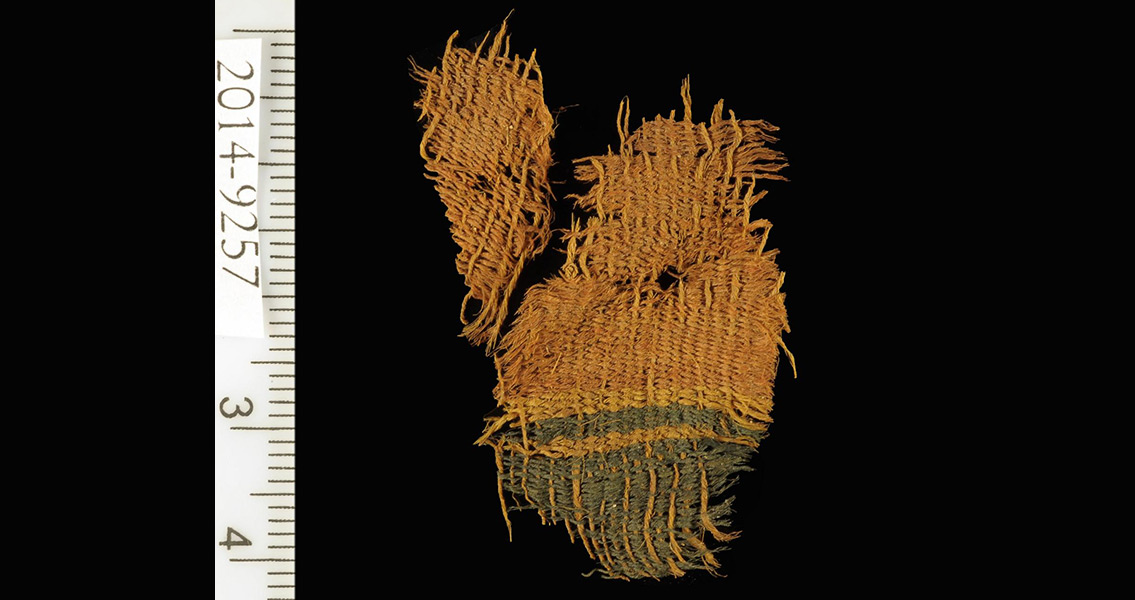<![CDATA[It reads like a novel: Deep in Israel's Arava Valley lies the ancient copper mines of Timna - mined since the 5th millennium B.C.E. (quite possibly by slaves and prisoners) and so rich in copper some maintain it’s the site of King Solomon’s mines. Add in Edomites, the ancient, semi-nomadic people (descendants of Esau, tradition says) who are widely believed to have operated the mines, scraps of 3,000-year-old fabric and the discovery of the biblical “seven species” and you have people’s attention. More intriguing? It’s fact, not fiction. Never before seen textiles from the age of David and Solomon have been discovered by the Timna research team from Tel Aviv University. Described as extensive - the collection of fabric includes a wide range of designs, colors and even origins (as indicated by their weaving techniques). The minuscule pieces of fabric, some as small as 5 square centimeters in size, vary in color, weaving technique and ornamentation. The remarkable preservation of the organic materials which include fabric, leather and seeds is due in large part to the arid climate found in the mines. These and other rare artifacts found there will undoubtedly provide a new perspective as to the practices and culture of the period and new information regarding the fashions in the Holy Land. Some of the samples are believed to be connected to the early Edonite people, a complex society about which little is known. "No textiles have ever been found at excavation sites like Jerusalem, Megiddo and Hazor, so this provides a unique window into an entire aspect of life from which we've never had physical evidence before," Dr. Ben-Yosef, who lead the Timna research team has been quoted as saying, "We found fragments of textiles that originated from bags, clothing, tents, ropes and cords. "The wide variety of fabrics also provides new and important information about the Edomites, who, according to the Bible, warred with the Kingdom of Israel. We found simply woven, elaborately decorated fabrics worn by the upper echelon of their stratified society. Luxury grade fabric adorned the highly skilled, highly respected craftsmen managing the copper furnaces. They were responsible for smelting the copper, which was a very complicated process." The “Seven Species” refer to seven agricultural goods; barley, wheat, figs, grapes, olives, pomegranates and dates which the Hebrew Bible lists as products special to the Land of Israel. In a fashion keeping with textiles; this discovery marks the first time seeds from this time have been discovered in such large quantities and uncharred. Advancements in research have allowed scientists to recreate the wine enjoyed by the people living in King David’s era, the DNA in the seed makes it possible for researchers to gain a valuable understanding of ancient domestication and cultivation processes. As for the mines themselves - copper was the oil of its day and as such a source of power. It was used to produce weapons and tools and in ancient cities was a highly valued resource. Additionally, the people who had the required knowledge and skill to “create” copper and turn stone into metal would have been looked upon as supernatural or magical, with a social status to match.]]>
Newly Discovered Fabric Weaves Together Past and Present
